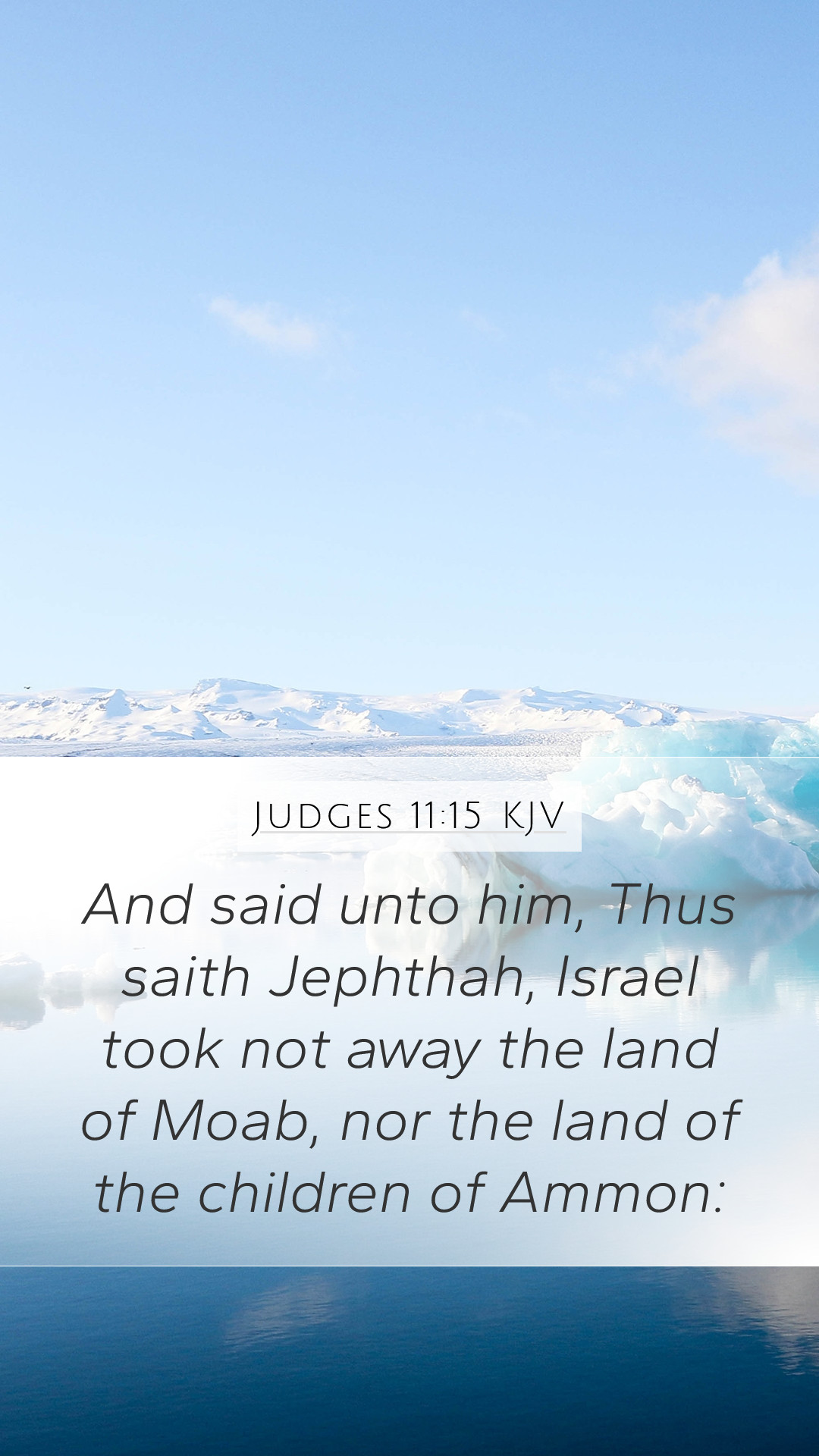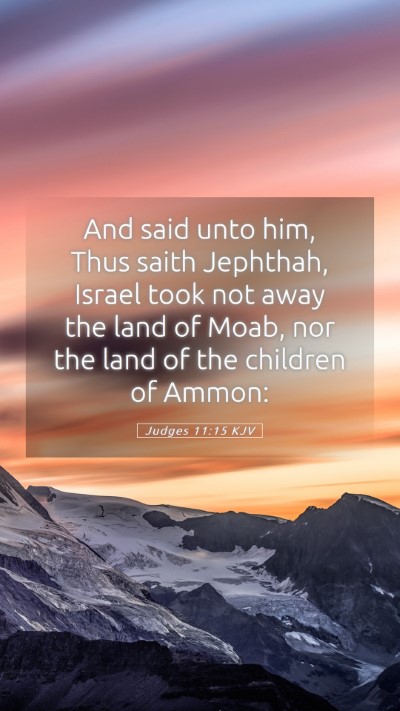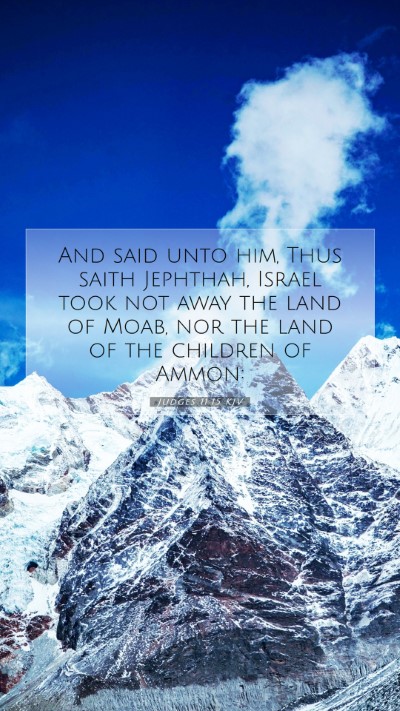Bible Verse Meaning: Judges 11:15
Judges 11:15 states:
"And said unto the kings of the children of Edom, and the kings of Moab, and the kings of the Ammonites, 'What have you to do with me?'"
This verse is part of a larger narrative where Jephthah, a leader of the Israelites, is reminding the nations that they should not hold grievances against Israel for territory that was claimed in the past.
Understanding Judges 11:15
The context of this scripture reveals Jephthah's diplomatic interaction with neighboring nations.
- Historical Context: Jephthah was a judge of Israel who rose to leadership during a time of conflict with the Ammonites.
- Conflict Resolution: This verse reflects the effort to clarify misunderstandings about land ownership and territorial claims among the Israelites and surrounding nations.
- Israel’s Identity: It emphasizes Israel's designation by God and their right to the land they occupied.
Bible Verse Commentary Insights
Matthew Henry's Commentary
Matthew Henry notes that Jephthah asserts Israel’s claim to the land, emphasizing that they had not taken it unjustly. He frames the dispute in terms of rightful possession given by God, affirming that God's will shaped Israel's territorial boundaries.
Albert Barnes' Notes
Albert Barnes highlights the importance of acknowledging the past context of territorial disputes and moral justification in war. He explains that Jephthah’s address serves as both a defense and a challenge to the entities attempting to reclaim the lands.
Adam Clarke's Commentary
Adam Clarke elaborates on the sociopolitical implications, stressing Jephthah’s role in diplomacy and his assertion of divine direction regarding Israel's conquests. Clarke points out the validity of Jephthah's claims based on historical and spiritual grounds, indicating that the nations harbored grievances without justified reason.
Scripture Analysis
The meaning of Judges 11:15 extends beyond a mere proclamation; it delves into the themes of:
- Divine Providence: The belief that God orchestrates histories and boundaries.
- Moral Justification: The assurance that Israel's actions were justified under divine rules.
- Identity and Heritage: Understanding one's place in the larger story of God’s people.
Application in Daily Life
When exploring how to apply Judges 11:15, consider the following:
- Confronting Conflicts: Approach disagreements with clarity and justification similar to Jephthah.
- Understanding Historical Context: Recognize the importance of history in contemporary discussions and conflicts.
- Divine Rights: Acknowledge the blessings and territories in your own life as gifts from God, leading to gratitude.
Additional Bible Cross References
- Deuteronomy 2:19: Discusses Israel's borders and the boundaries set by God.
- Numbers 21:21-24: Details Israel's encounters with other nations during their journey.
- 1 Samuel 12:9: Reflects on the deliverance of Israel from oppression, linking to Jephthah's narrative.
Conclusion
Judges 11:15 exemplifies the dual themes of territorial rights and divine leadership typical in Israel's historical context. Through the insights gained from public domain commentaries, we develop a deeper understanding of the scripture that speaks to identity, justice, and God’s providence over His people.
Further Exploration
For those seeking Bible study insights, consider utilizing various Bible study tools that offer detailed commentary and analysis on similar passages. Engaging in Bible study groups can also foster rich discussions aimed at uncovering the layers of meaning within scripture.


